JAJSH37A August 2019 – August 2019 TPS56C230
PRODUCTION DATA.
- 1 特長
- 2 アプリケーション
- 3 概要
- 4 改訂履歴
- 5 概要(続き)
- 6 Pin Configuration and Functions
- 7 Specifications
- 8 Detailed Description
- 9 Application and Implementation
- 10Power Supply Recommendations
- 11Layout
- 12デバイスおよびドキュメントのサポート
- 13メカニカル、パッケージ、および注文情報
7.6 Typical Characteristics
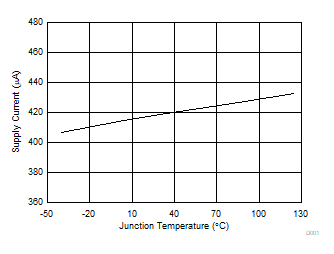
| VEN = 5 V |
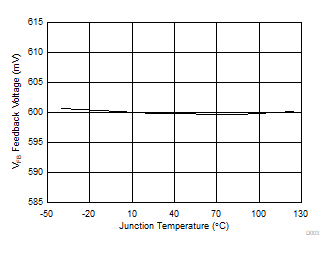
1.
Figure 3. Feedback Voltage vs Junction Temperature 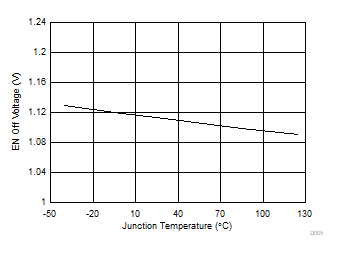
1.
Figure 5. Enable Off Voltage vs Junction Temperature 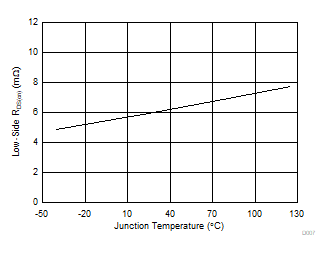
1.
Figure 7. Low-Side RDS(on) vs Junction Temperature 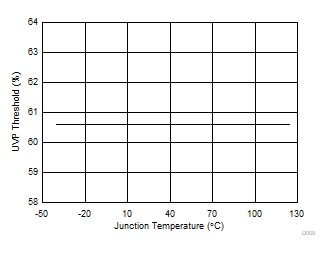
1.
Figure 9. UVP Threshold vs Junction Temperature 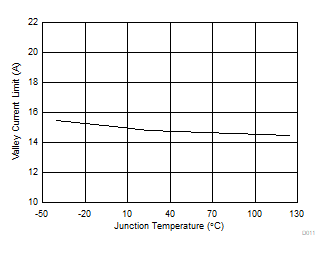
1.
Figure 11. Valley Current Limit vs Junction Temperature 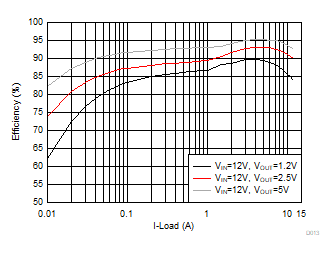
1.
Figure 13. Efficiency vs Load Current, Eco-mode 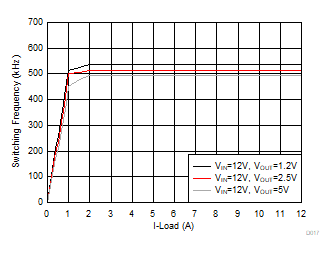
1.
Figure 15. Switching Frequency vs Load Current, Eco-mode 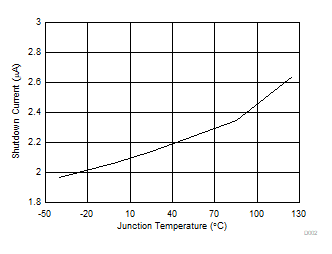
| VEN = 0 V |
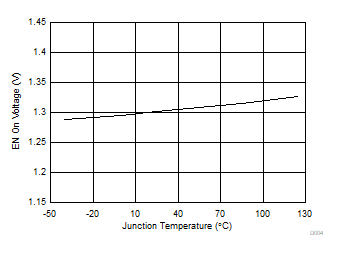
1.
Figure 4. Enable On Voltage vs Junction Temperature 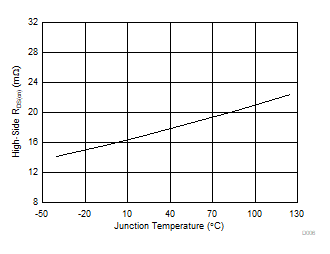
1.
Figure 6. High-Side RDS(on) vs Junction Temperature 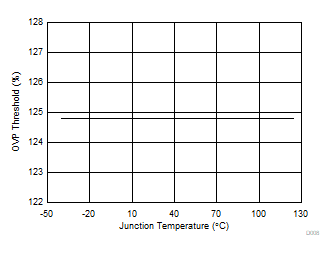
1.
Figure 8. OVP Threshold vs Junction Temperature 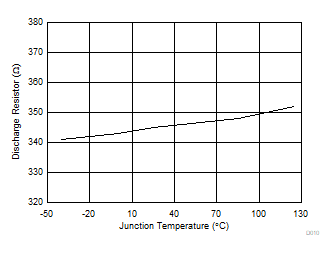
1.
Figure 10. Discharge Resistor vs Junction Temperature 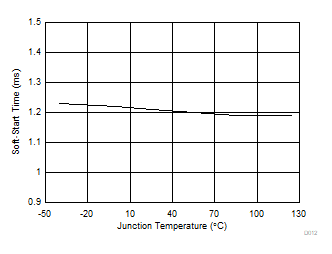
1.
Figure 12. Soft-Start Time vs Junction Temperature 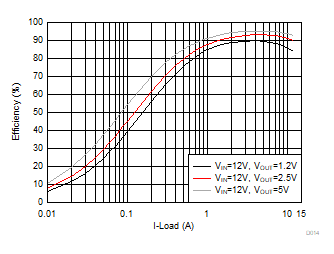
1.
Figure 14. Efficiency vs Load Current, FCCM 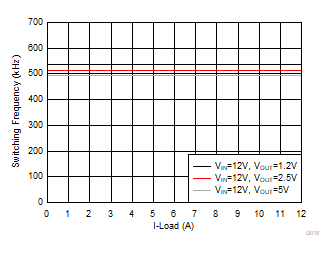
1.
Figure 16. Switching Frequency vs Load Current, FCCM